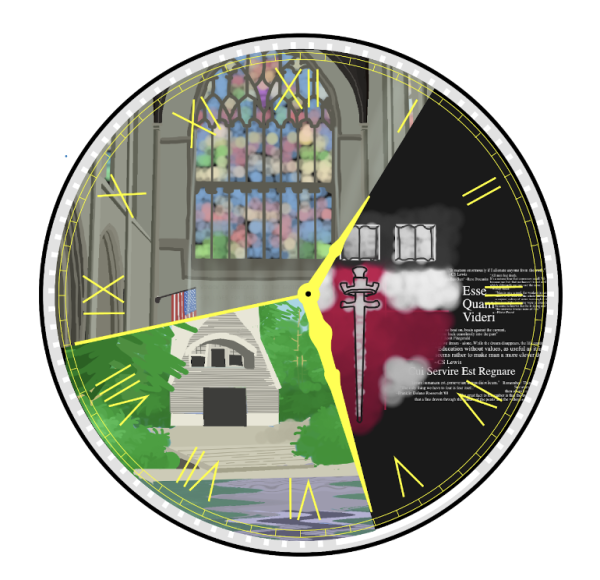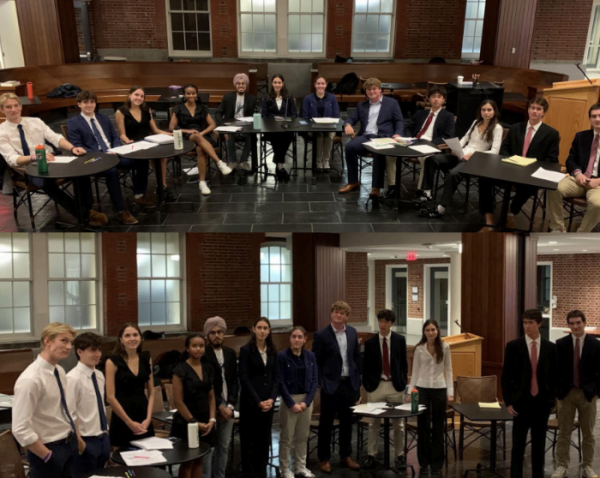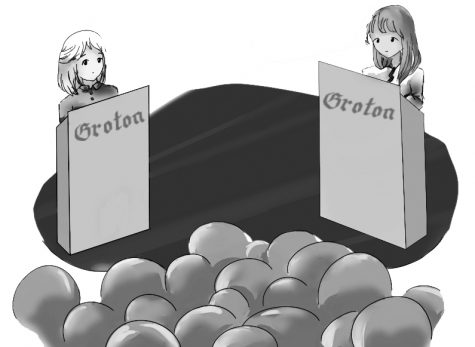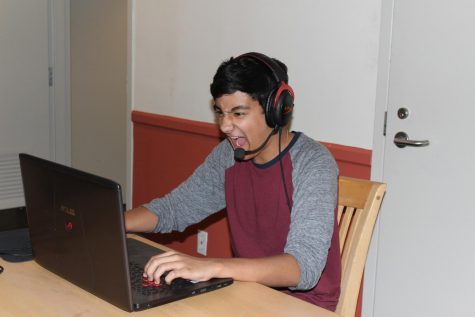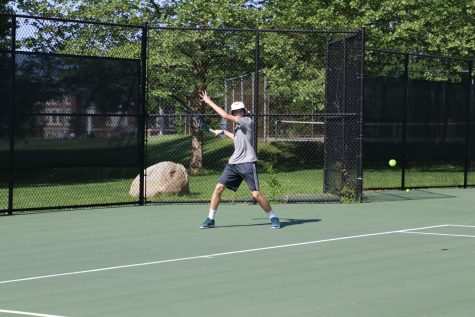Student Lawyers, Justices Tackle Obergefell v. Hodges in Lively Mock Court
William Howard Taft, the only person to have served as both President of the United States and as Chief Justice of the U.S. Supreme Court, once declared, “Presidents come and go, but the Supreme Court goes on forever.” Taft’s quote is reflected in the enduring popularity of the two Court and the Constitution history electives, taught by John Lyons. Mr. Lyons and his multi-term electives offer students an in-depth study of the role of the Court in American life.
In broad terms, Court and the Constitution classes (known around campus as “Court”)investigate the role of America’s founding document on society. More specifically, the class focuses on the role the Supreme Court has played in defining the power of the federal government and the extent of individual liberty.
While both the fall and winter courses are dedicated to exploring the Court’s jurisprudence surrounding the Fourteenth Amendment, their focuses are different. The fall class focuses on the amendment’s Due Process Clause, which says that “No State shall deny … life, liberty and property without due process of law.” The winter’s iteration of the class, however, focuses on the Equal Protection Clause, which says that “No State shall make or enforce any law which shall… deny to any person within its jurisdiction the equal protection of the laws.” Mr. Lyons noted that the principles of life, liberty, and property have “often been at loggerheads throughout American history.” In exploring these concepts, the class is taught in a seminar style, consisting primarily of student-directed discussion.
The grand conclusion to Court and the Constitution is the Mock Court, in which Supreme Court in especially noteworthy arguments are replicated. The class is divided into justices and attorneys. Within that framework, the class takes on contemporary cases related to the doctrinal themes of the class each term. This term will end with a class simulation of Obergefell v. Hodges, the recent landmark decision by the Court declaring that bans on same-sex marriage violate the Constitution. Student “lawyers” are currently researching and writing legal briefs in preparation for their Mock Court, which was conducted Monday, February 26.
As Mr. Lyons observed, Mock Court is a difficult activity. “[Lawyers] must do their best to advance an argument while being constantly interrupted by the justices.” In preparation for the rhetorical assault, lawyers and justices alike will not only pore over the actual briefs used before the Court, but also review amicus curiae (“friend of the court”) briefs, which are prepared by outside organizations.
The rigor of the Mock Trial process has been an incredibly proving ground. Mr. Lyons noted that many who have taken the elective have gone on to attend law school. At one point, he observed, there were five or six alumni of his elective attending Yale Law School at the same time. One veteran, Roman Martinez ‘97, clerked for Chief Justice John Roberts and worked in the Solicitor General’s Office in the Department of Justice in the Obama administration, where he argued many cases before the Court.
Tensions will be high Monday night as oral arguments begin before what the class hopes will be dozens of interested observers. As Taft himself once said, the Constitution is a vital “check on the hasty actions of the majority.” There is no doubt that a piece of the argument that one side will make Monday evening in what should be a spirited session – especially so with participation grades on the line.


